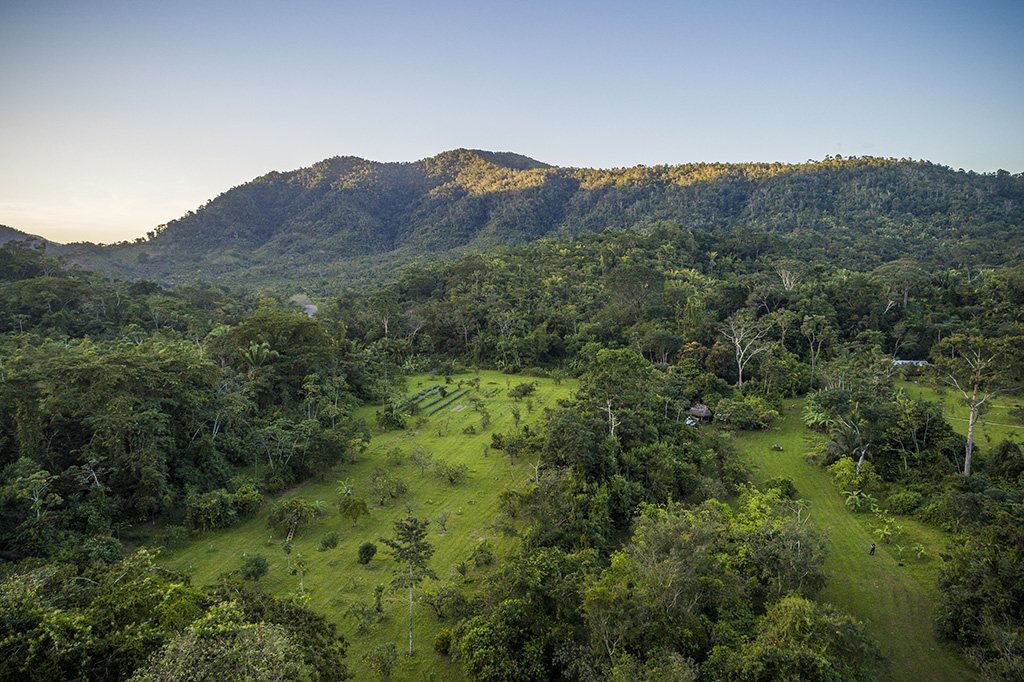Williams co-authors report providing road map for the science of nature-based climate solutions

Nature-based climate solutions like reforestation, climate-smart agriculture, and wetland restoration harness natural processes to reduce greenhouse gas concentrations in the atmosphere and slow climate change. A new report, “The science needed for robust, scalable, and credible nature-based climate solutions in the United States,” reviews the current state of knowledge in this field and describes the necessary research and technology investments to support effective mitigation policy.
Co-authored by Christopher Williams, professor of geography and director of environmental science at Clark, the report is the result of a workshop in Washington, D.C., where several dozen scientists and policy experts gathered to evaluate the science, data, and information necessary to support nature-based climate solutions (NbCS).

Williams, an expert on the global climate impacts of forests — how they can serve as a climate solution, as well as when and where they can’t — was an invited keynote speaker in the June 2022 workshop, presenting “Biophysics of Nature-based Climate Solutions: Sorting Mitigation and Adaptation at Local and Global Scales.”
NbCS approaches have substantial and growing support from bipartisan lawmakers, the private sector, and conservation-minded NGOs, but scientific tools to guide implementation and to accurately monitor outcomes are not adequately developed.
The authors identify critical gaps in the science needed to support large-scale implementations of nature-based climate solutions and lay out a research agenda to fill these gaps. They also outline a set of principles that should guide future assessments of the effectiveness and viability of nature-based climate solutions.
“This report is critical because, in addition to zeroing out fossil fuel emissions, we need to draw down atmospheric carbon dioxide levels — and nature-based solutions can help if we play our cards right,” Williams says. “However, there is a lot of hype and poor practice in this space right now, so the science, policy, and governance experts need to weigh in to ensure solutions lead to genuine net cooling.”
“As just one example, we need to ensure that we take account of the full climate impacts of reforestation efforts, including the changes in albedo that can offset carbon sequestration benefits. This report sheds light on this and many other aspects, identifying science and information needs while offering an overarching framing of what constitutes real solutions,” Williams says.
Dr. Kim Novick of the Paul H. O’Neill School of Public and Environmental Affairs at Indiana University, the report’s lead author, says, “Nature-based climate solutions can play an important role in slowing the pace of climate change, but only if they are pursued alongside economy-wide decarbonization and guided by the best-available science.”
The report provides a road map for producing and using actionable, cross-sectoral information to foster programs and policies that work — while avoiding energy wasted on those that do not. It includes strategies that can be useful for public agencies, nongovernmental organizations, and private sector staff working to implement nature-based solutions on the ground, as well as agencies seeking to fund investment in nature-based climate solution research and development.
“This report is one of the best I’ve seen to date on this complex topic,” Williams says. “It offers a comprehensive framework for scoping nature-based climate solutions and framing some of the serious limitations with what we are seeing in the carbon offset marketplace today.”
The report calls for a ≈$1 billion investment in a national information network for nature-based climate solutions, organized around coordinated ground-based experiments and monitoring that can inform rigorously benchmarked maps, model predictions, and protocol evaluations.
“To every extent possible, we aimed to create a vision that leverages existing infrastructure and can be executed at the rapid pace necessary to have a meaningful impact on the trajectory of climate mitigation policy,” Novick says.
In addition to their potential to stave off climate change, nature-based solutions can improve air and water quality, promote biodiversity, and provide economic opportunities. Many also can help communities adapt to a changing climate and improve the resilience of agricultural and food systems.
Christopher Williams was the lead author of the 2021 article, “Climate Impacts of U.S. Forest Loss Span Net Warming to Net Cooling,” which revealed that deforestation in the U.S. does not always cause planetary warming, as is commonly assumed; instead, in some places, it actually cools the planet. In 2018, Williams contributed to “Natural Climate Solutions for the United States,” a comprehensive national assessment of how greenhouse gas emissions can be reduced and stored in forests, farmland, grasslands, and wetlands.
The June 2022 workshop was co-sponsored and funded by Indiana University’s Paul H. O’Neill School, the U.S. Department of Energy’s AmeriFlux network, and the U.S. Carbon Cycle Science Program. The report features nearly 30 authors representing a diverse range of academic, governmental, and nonprofit institutions.


